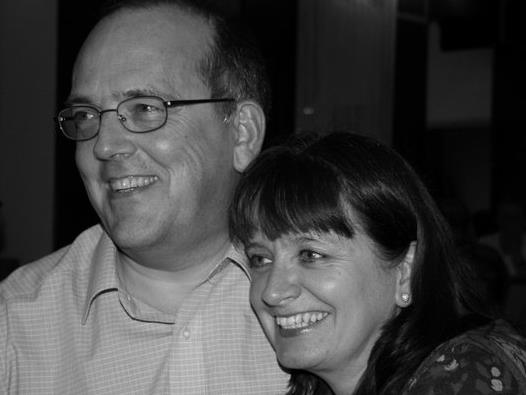How many of us stop to consider what it means to listen? Yet, at some time in our lives each of us will have experienced that universal sense of knowing we have been heard and understood.
I first experienced this knowing in childhood. My grandfather, fifty years my senior and survivor of WWII, was the person I trusted with my innermost thoughts, feelings, dreams and fears. Like most people I didn’t stop to question it, but I knew how it felt, to be heard and understood – I felt a connection with my grandfather like no other, and I felt safe.
Years later I became a nurse and entered a career that forced me to examine what it means to listen. Qualifying as a pediatric nurse and specializing in children’s mental health, I learned about active listening versus non-active listening, about the importance of listening skills.
But it wasn’t until I reflected on what listening actually does that I began to understand its power.
During supervision I said to a colleague that of all my training, one skill stands out from the rest – the skill of listening.
The simple act of ‘just listening’ contains more healing power than any other skill or therapy. My colleague nearly had apoplexy when she heard me say, ‘just listening,’ before helping me to understand what listening means.
Here is what she said: “Most people, who believe they are listening, are not listening but paying attention to their own internal thoughts, opinions, feelings, and beliefs. Only aware of their own internal world and waiting for a gap in the conversation for their chance to share their views. It is called non-active because it makes no demands of the listener to listen to anyone else’s voice except their own. It is lazy listening.“
In everyday conversation this type of non-active listening is irritating, but it doesn’t matter. But when we are in the presence of someone who is hurting emotionally or psychologically wounded, this type of non-active listening causes harm because it ignores the emotional needs of someone who desperately needs to connect and talk.
Active listening is active because it requires the listener to do something – it requires the listener to suspend their internal world of thoughts, feelings and opinions while they ‘attune’ to someone else’s internal world, becoming fully there for that person. This kind of active listening is the hallmark of an empathic response.
“I understand how it works,” I said. “But what makes it so powerful?”
She said, “It may seem as if we are doing and saying nothing, but within active listening there are unspoken messages hidden within the silences. When we listen without responding from our own internal world, we give an unspoken message that we care enough to be present in the moment and connect with someone in pain. When we validate someone’s feelings, underneath the spoken message is an unspoken message that says feelings are acceptable – this is how healing begins. When we stay with someone who is experiencing painful feelings, when we stay in silence, without trying to stop, distract or turn away, we give an unspoken message that says, ‘I can bear your feelings, and I won’t break.’“
When someone in pain can see that we can bear their pain and we do not break, they begin to feel the power of unspoken messages – the power that helps someone to begin to believe that they too can bear the unbearable, that they will not break, and that they can survive the unimaginable.
Active listening has power. It can help someone to accept painful feelings, to feel connected, to feel safe. It is the power of healing.
Ca-ching! The penny drops – childhood memories of talks with my grandfather.

Fast forward to December 2014. Nothing prepared me for the sudden and unexpected shock of losing my beloved husband, best friend and soulmate. From normal life to living hell in the blink of an eye. My world as I knew it was gone. I was plunged into unimaginable pain. I was vulnerable – no longer the helper but someone badly in need of help, and the help I needed the most was ‘active listening.’
What I mostly got was listening of the non-active kind. I have run the gauntlet of insensitive, thoughtless comments – each containing a coded message designed to shut me down, cut me off from my feelings, make me feel disconnected from others, keeping me stuck and afraid I might not survive. Here are just a few examples of my experience of non-active listening:
‘I can’t bear to see you this way,’ [code = I can’t bear your feelings so please don’t show them]
‘this is what you need to do’ [code= I know how to fix this and I’m going to tell you what to do]
‘I need you to call me so that I know you’re alright’ [code = my needs take priority over yours and I need reassurance and you must give it]
‘I feel so much better for talking to you’ [code = I have no problems leaning on a vulnerable person to get my needs met – this one is both unacceptable and abusive]
‘grief will last 1 month, 2 months, 3 months, 6 months, 1 year, 5 years,’ [code= grief has a time limit]
‘you’re such a good listener,’ [NO! I’m in shock / grieving]
‘stay strong,’ [code=don’t show your feelings]
‘keep busy,’ [code= don’t feel your feelings]
‘have you considered seeing a counsellor?’ [code= don’t bring your feelings to me]
To a vulnerable person insensitive comments like these, feel like assaults on the senses.
To protect ourselves we quickly learn to hide feelings; smiling when we want to cry, saying we’re doing fine when we’re not, choosing who is safe to be around (active listeners) and who is not.
We go into survival mode, putting healing on hold until it feels safe to grieve and process our feelings.
Today, I look back at things that were said in a more balanced way.
I understand that no-one set out to hurt me.
But poor listening has only one purpose – to distract attention away from something that the listener is not equipped to deal with – to help someone in their hour of need.
I was lucky, I had mindful listeners wrapping themselves around me after my loss.
Quiet, unassuming listeners, wielding power in their unspoken messages.
I thank these listeners for being there for me when I was lost.
For providing attuned, empathic responses that kept me going.
For standing by me as I stood in my personal hell – in the abyss called grief.
For showing me with powerful unspoken messages, calling me back to life, and helping me to believe that…
I will not break,
I can bear my grief,
I can survive the unimaginable,
I can feel safe again,
I can heal, and
I can learn to live, once more.
 Ruth Jones lost her beloved husband, Kevin, to heart failure on December 2014. Although she is now retired as a nurse, she remains passionate about mental health issues. She enjoys the creative process of writing, and writes mainly poetry and is completing a poetry writing course at the Faber Academy in London at the end of June 2018. she also practices meditation and have an interest in Buddhism as a philosophy for living.
Ruth Jones lost her beloved husband, Kevin, to heart failure on December 2014. Although she is now retired as a nurse, she remains passionate about mental health issues. She enjoys the creative process of writing, and writes mainly poetry and is completing a poetry writing course at the Faber Academy in London at the end of June 2018. she also practices meditation and have an interest in Buddhism as a philosophy for living.




